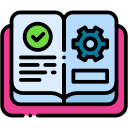Designing Modular, Microlearning Paths
Break complex competencies into 8–12 minute lessons, each with a concrete outcome and a quick practice. Learners can mix, match, and revisit modules as needs emerge, while leads can assemble role-specific playlists on demand.
Designing Modular, Microlearning Paths
Favor short videos with captions, lightweight slide decks, annotated code snippets, and downloadable transcripts. Pair with interactive docs and discussion threads to keep bandwidth-friendly access while enabling collaboration and teach-back moments.








